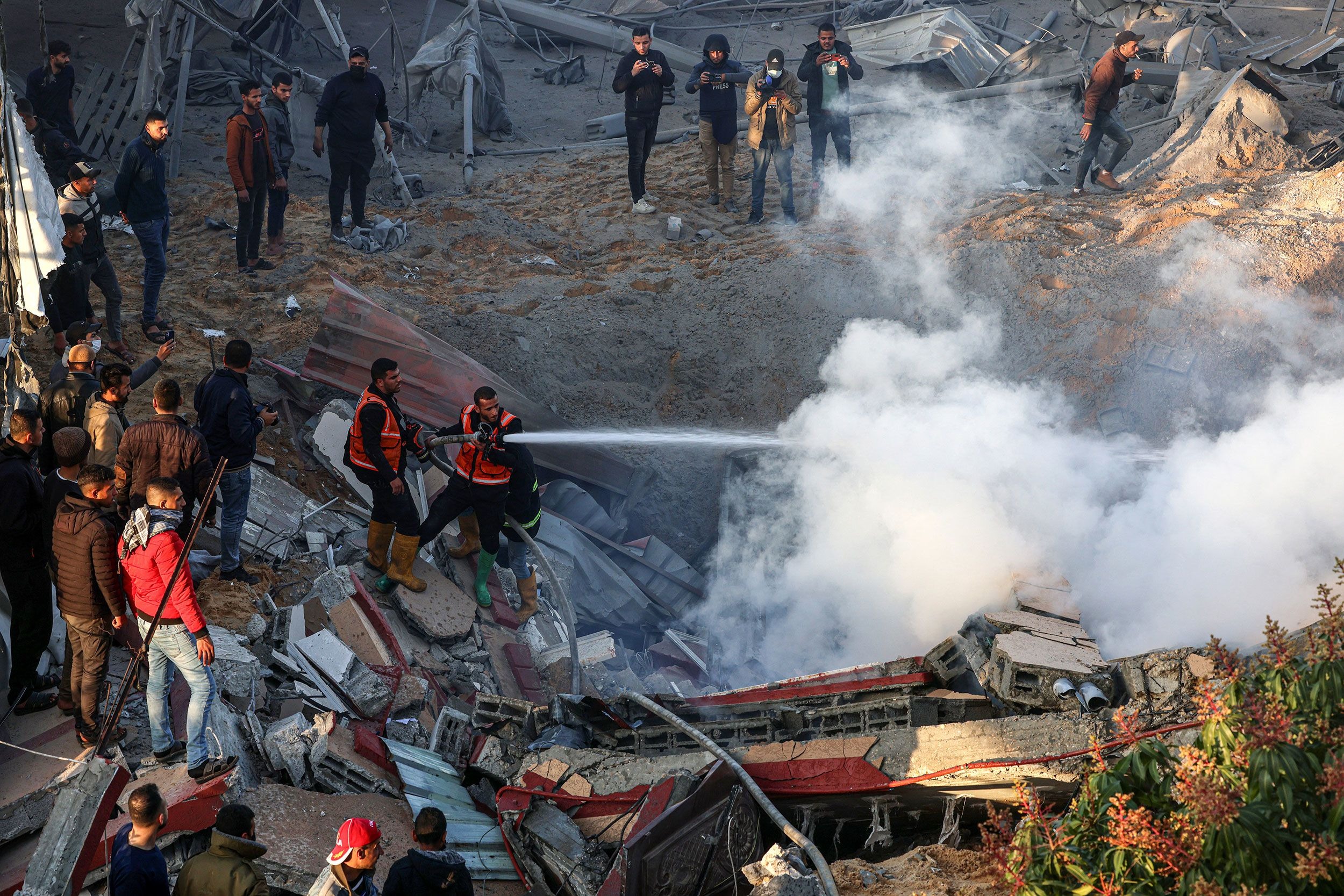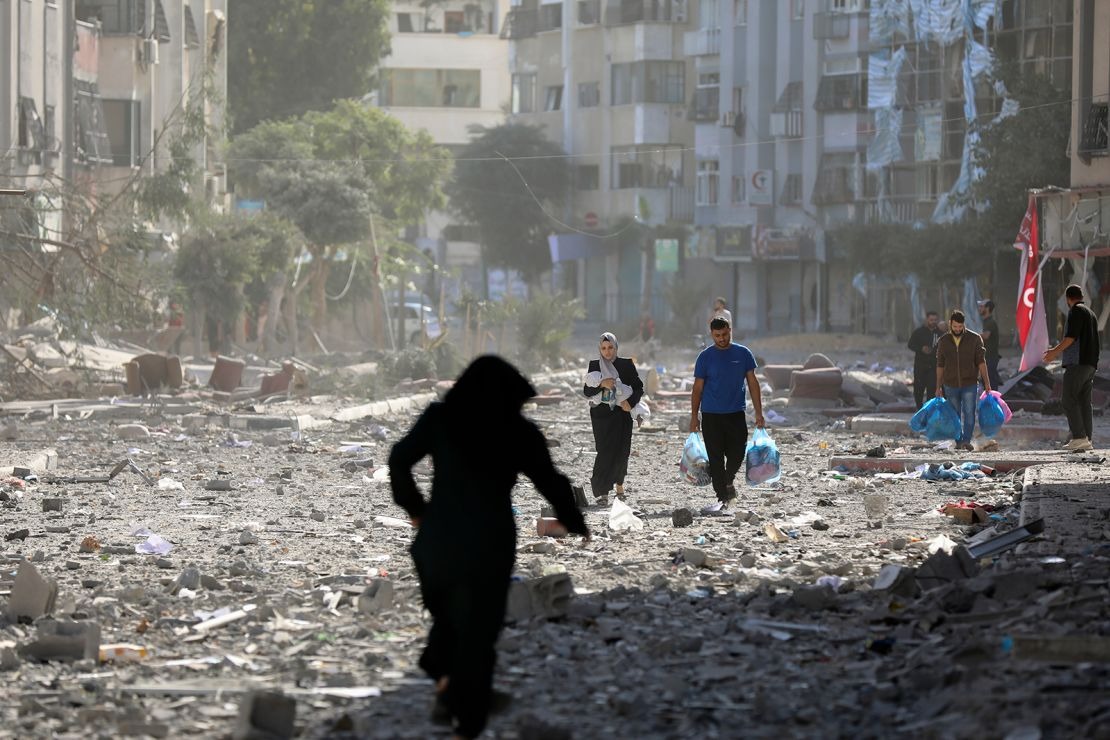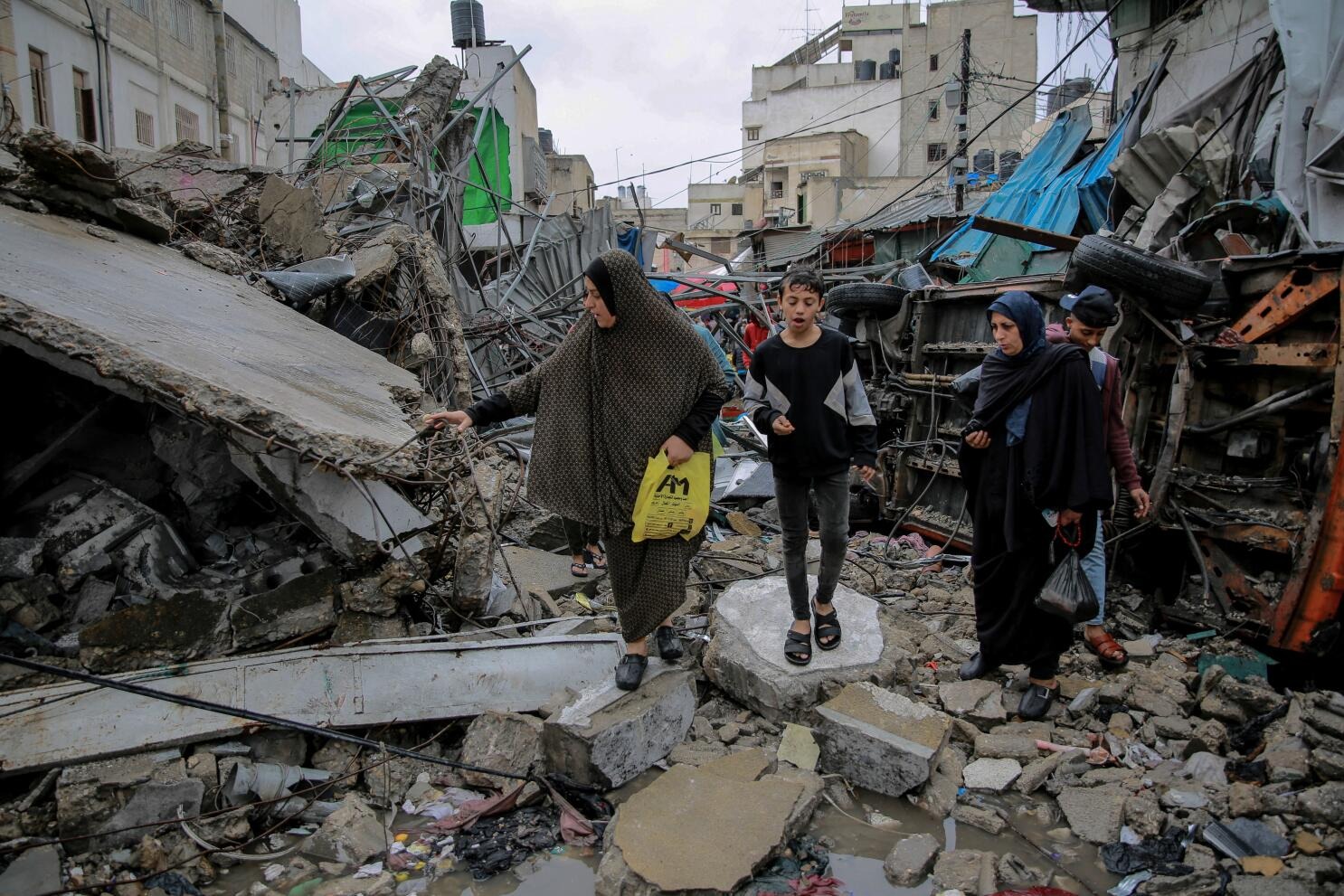During my recent pilgrimage to Israel/Palestine, I had the privilege of listening to the stories and perspectives of both Palestinians and Israelis living in East Jerusalem, the occupied West Bank, and Israel.
The root cause of this longstanding conflict – a deep-seated tsunami of trauma, hate, and fear – is suffocating the sense of common humanity shared by two peoples living on one land. Yet, in the middle of the pain and suffering, I witnessed the profound love each person has for their people and their shared land.
My greatest hope is that when this tragic and violent phase of the crisis ends, a permanent ceasefire will ignite a love-centered peaceful revolution, creating a new reality where the land will be for all to live in with justice and peace.

US proposes a ‘temporary ceasefire’ in Gaza (Credits: CNN)
In East Jerusalem, I met a passionate 26-year-old Palestinian man whose family has lived in Palestine for centuries. He shared the intergenerational pain and suffering his family experienced during the last 100 years, under British colonial rule and the Zionist nation-state.
He spoke of his grandmother’s violent expulsion from their family home in Jaffa during the 1948 Nakba, and how his Palestinian family members are treated as second-class citizens in a crushing caste system enforced by the state of Israel.
The intensification of Palestinian oppression since October 7 includes expulsion, intentional starvation, and murderous actions in and around Gaza, as well as a horrendous escalation of violence in the occupied territories of the West Bank and East Jerusalem.
Random and frequent raids, harassment, demolition of homes, land confiscation, arrest, and torture by police, the Israel Defense Forces (IDF), and violent Jewish settlers have become the norm. West Bank Palestinians are too fearful to leave their homes, and the closing of borders is crushing the economy and separating families, leaving them struggling to survive.

Gaza Ceasefire Sparks Peaceful Revolution (Credits: NIAC Action)
A January 2024 ruling by the International Court of Justice (ICJ) ordered the state of Israel to implement “immediate and effective measures” to protect Palestinians in the occupied Gaza Strip from the risk of genocide. Since then, many West Bank Palestinians fear they may be next on the list for decimation and expulsion once the IDF completes its actions in Gaza.
I was deeply saddened by the young man’s tragic resignation to inevitable cycles of violence. He explained that young people believe war is the only way to defend their dignity and human rights, as most Israelis refuse to see the oppression underway, leaving them complicit with Israel’s dominance.
I met a middle-aged Israeli woman in Jerusalem who works to build peace with Palestinians. She shared her hyper-traumatized state, reliving the October 7 Hamas attack and the ongoing hostage crisis daily. She fears a second Holocaust could occur as Hamas threatens more murderous raids, and Iran’s recent direct attack on Jerusalem with 390 missiles and drones has shattered any sense of security.
I also met a middle-aged Israeli man in Tel Aviv who denied any oppression was underway and shockingly called all Palestinians “two-legged Satans.” He shared the long history of terrorist events against Jewish people in his city.
The U.N. and international humanitarian organizations confirm a famine is underway in northern Gaza, and the IDF’s preparations for a crushing onslaught in southern Gaza may deepen and expand the crisis.

‘We need the truce to continue.’ Gazans fear Israel will soon resume bombardment (Credits: Los Angeles Times)
On the last days of my pilgrimage, I joined an international delegation of rabbis and activists from the United States and Israel. We attempted to deliver urgently needed food aid to children and families in Gaza at the Erez border crossing.
As I faced the Israeli police and IDF, I transformed my fear and grief into love, praying for peace and freedom for all. I recalled Rev. Martin Luther King Jr.’s words: “Along the way of life, someone must have sense enough and morality enough to cut off the chain of hate. This can only be done by projecting the ethic of love to the center of our lives.”
Meeting love-filled Israelis and Palestinians unifying for peace and justice through grassroots cooperation leaves me optimistic. A miracle is possible as Palestinians and Israelis conceptualize “A Land for All,” envisioning a confederation of two sovereign states in a common homeland, replacing the Zionist nation-state policy of separation and segregation.
This new approach can unlock solutions on the status of Jerusalem, Israeli settlements, the right of return of Palestinian refugees, and open borders between two states.
People in Israel/Palestine and worldwide are rising in peaceful revolutions to ensure food aid reaches the starving in Gaza, to realize an end to the siege, an immediate and permanent ceasefire, the release of all hostages and prisoners, and an end to the occupation and systemic subjugation of Palestinians. Peacemakers from all sides can manifest a new vision of peaceful coexistence, building trust, healing, repairing, and co-creating a new reality.























